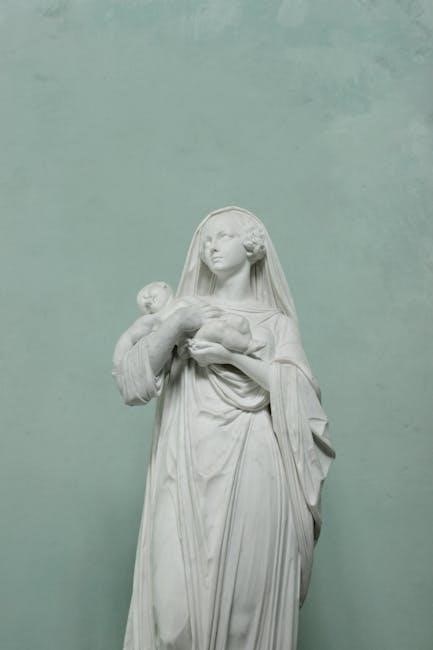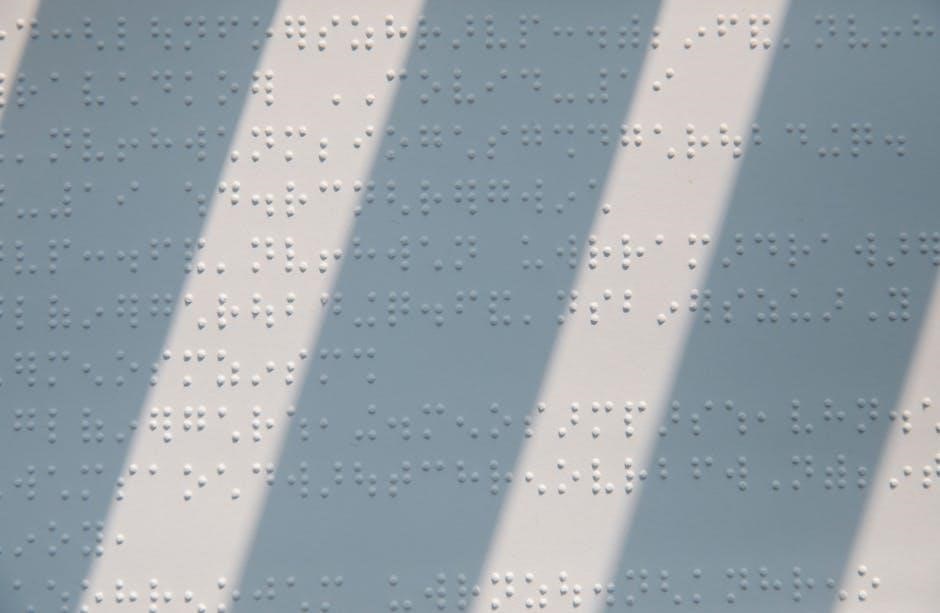Understanding the NC Religious Exemption Form
The NC Religious Exemption Form allows individuals to opt out of immunization requirements due to bona fide religious beliefs. A written statement‚ not a specific form‚ is required‚ detailing objections and signed by the parent or guardian.
What is the NC Religious Exemption Form?

The NC Religious Exemption Form is a document used to request exemption from immunization requirements in North Carolina based on bona fide religious beliefs. Unlike medical exemptions‚ which require a physician’s signature‚ the religious exemption process does not involve a specific form provided by the state. Instead‚ individuals must submit a written statement outlining their religious objections to immunization. This statement must be signed by the parent‚ guardian‚ or person in loco parentis of the child. The exemption is granted under North Carolina General Statute 130A-157‚ which recognizes the right to opt out of immunizations due to sincerely held religious beliefs. While there is no official form for this exemption‚ the written declaration must clearly express the individual’s opposition to immunization based on their faith. Schools and institutions in North Carolina are required to accept and process these exemptions‚ ensuring compliance with state law while respecting religious freedom.

Legal Basis for Religious Exemptions in North Carolina

The legal basis for religious exemptions in North Carolina is established under North Carolina General Statute 130A-157. This statute permits individuals to opt out of immunization requirements if their bona fide religious beliefs contradict the mandatory vaccination laws. The law applies to both children and adults‚ allowing parents‚ guardians‚ or individuals in loco parentis to request an exemption on behalf of a child. To claim this exemption‚ a written statement detailing the religious objections must be submitted‚ as no specific form is required by the state. Schools‚ universities‚ and childcare facilities are legally obligated to accept these exemptions‚ ensuring compliance with the law while respecting religious freedom. This statutory provision ensures that individuals in North Carolina can exercise their religious beliefs without being compelled to adhere to immunization requirements. The law balances public health concerns with individual rights‚ providing a clear framework for exemptions based on sincerely held religious convictions.
Eligibility Criteria for Requesting a Religious Exemption

To request a religious exemption in North Carolina‚ individuals must meet specific eligibility criteria. The exemption is available for children and adults who have bona fide religious beliefs that oppose immunization. Parents‚ guardians‚ or individuals in loco parentis may request an exemption on behalf of a minor. The exemption process requires a written statement outlining the religious objections to immunization‚ which must be signed by the requesting party. No specific form is mandated for this purpose‚ but the statement must clearly articulate the religious beliefs contradictory to vaccination requirements. The beliefs must be sincerely held and central to the individual’s or family’s religious practices. Schools‚ childcare facilities‚ and universities in North Carolina are required to accept these exemptions‚ provided the criteria are met. This ensures that individuals with genuine religious objections can access educational and care services without violating their beliefs. The eligibility criteria are designed to balance public health requirements with religious freedom‚ as outlined in state law.
Process for Obtaining a Religious Exemption in NC
To obtain a religious exemption in North Carolina‚ individuals must follow a straightforward process. First‚ they must draft a written statement detailing their bona fide religious beliefs opposing immunization. This statement must clearly explain how vaccinations conflict with their religious convictions. The statement does not require a specific form but must be signed by the individual‚ parent‚ or guardian. Next‚ the signed document should be submitted to the school‚ childcare facility‚ or institution the individual is attending. Schools are required to accept this exemption if the criteria are met‚ as per state law. The institution will typically keep the exemption on file‚ ensuring compliance with North Carolina’s immunization laws. No additional forms or approvals are needed beyond the written statement. This process ensures that individuals with sincere religious objections can access educational and care services without compromising their beliefs. The exemption remains valid unless revoked by the individual or updated as circumstances change.
Required Documentation for Religious Exemptions
In North Carolina‚ the primary documentation required for a religious exemption is a written statement expressing the individual’s or parent’s bona fide religious beliefs opposing immunization. This statement must be signed by the parent‚ guardian‚ or person in loco parentis. Unlike medical exemptions‚ there is no specific form required for religious exemptions. The written statement should clearly outline how vaccinations conflict with the individual’s religious convictions. This document is typically submitted to the school‚ childcare facility‚ or institution the individual is attending. No additional forms‚ such as the DHHS 3987 or DHHS 3995 used for medical exemptions‚ are necessary for religious exemptions. The institution will generally retain a copy of the exemption statement for their records. This straightforward process ensures compliance with state law while respecting the individual’s religious beliefs. No further documentation or approval is required beyond the signed statement.

Key Considerations and Implications

Claiming a religious exemption allows individuals to attend school without immunization‚ raising public health concerns. Schools must balance compliance with state laws while managing potential risks of disease outbreaks in exempt populations.

How Schools and Institutions Handle Religious Exemptions
Schools and institutions in North Carolina are required to accept religious exemptions from immunization requirements‚ as per state law. When a parent or guardian submits a written statement outlining their religious objections‚ the school must honor this exemption without requiring further documentation. However‚ schools are also obligated to maintain records of students who have been exempted and ensure compliance with state health regulations. In the event of a disease outbreak‚ schools may exclude exempt students to protect public health. Institutions are also responsible for educating families about the implications of religious exemptions and ensuring that all policies align with North Carolina’s immunization laws. Ultimately‚ schools must balance respecting religious beliefs with maintaining a safe and healthy environment for all students.

Differences Between Medical and Religious Exemptions in NC
Medical and religious exemptions in North Carolina differ in their requirements and underlying reasons. Medical exemptions are granted when a licensed physician certifies that immunization is contraindicated due to medical conditions‚ such as allergies or immune system disorders. These require specific forms‚ like the Medical Exemption Statement (DHHS 3987) or Physicians Request for Medical Exemption (DHHS 3995)‚ both needing a physician’s signature. In contrast‚ religious exemptions are based on bona fide religious beliefs opposing immunization. No specific form is required; instead‚ individuals submit a written statement detailing their objections‚ signed by the parent or guardian. While medical exemptions involve health risks validated by professionals‚ religious exemptions rely on personal beliefs without needing medical verification. Both are recognized under state law but differ in documentation and rationale‚ reflecting distinct approaches to accommodating individual circumstances while balancing public health concerns.
Public Health Implications of Religious Exemptions
Religious exemptions from immunization requirements can have significant public health implications. By allowing individuals to opt out of vaccinations based on religious beliefs‚ these exemptions can lead to reduced vaccination rates‚ potentially weakening herd immunity. This can increase the risk of disease outbreaks‚ as seen in areas with high exemption rates. For instance‚ diseases like measles have resurged in communities with lower vaccination coverage. The clustering of unvaccinated individuals can create vulnerable populations‚ especially in settings like schools and densely populated areas. Public health efforts to control and eliminate diseases may be hindered‚ and the healthcare system may face increased costs due to the treatment of preventable illnesses. While religious freedom is an important consideration‚ the broader impact on community health necessitates a balance between individual rights and collective well-being. Education and outreach are crucial in addressing vaccine hesitancy and ensuring the protection of both individuals and the public.
Future of Religious Exemptions in North Carolina
The future of religious exemptions in North Carolina remains a topic of ongoing debate. As public health concerns and vaccine hesitancy continue to evolve‚ policymakers may reevaluate the current framework for religious exemptions. Some advocates argue for stricter regulations to ensure high vaccination rates and protect public health‚ while others emphasize the importance of preserving religious freedom. Potential changes could include requiring a more formal process for submitting religious exemptions‚ such as standardized documentation or verification of sincerely held beliefs. Additionally‚ there may be efforts to balance individual rights with community health by introducing education initiatives to address vaccine hesitancy. Lawmakers might also consider aligning religious exemptions with medical exemptions‚ which require physician approval‚ to ensure consistency. The interplay between legal‚ ethical‚ and public health considerations will likely shape the future of religious exemptions in the state. For now‚ the exemption process remains relatively straightforward‚ but changes could emerge in response to shifting societal and medical landscapes.
Resources for Understanding and Completing the Form

Several resources are available to assist individuals in understanding and completing the NC Religious Exemption Form. The North Carolina Department of Health and Human Services (NCDHHS) provides detailed guidance on their website‚ including information on the legal basis for religious exemptions and the process for submitting a written statement. The NC Immunization Branch is another valuable resource‚ offering contact information for questions and clarification on exemption requirements. Additionally‚ the Immunize NC website hosts forms and documents related to immunization exemptions‚ including examples of acceptable written statements for religious objections. Parents and guardians can also consult with school administrators or local health departments for assistance in navigating the exemption process. It is important to ensure all submissions are compliant with N.C.G.S. 130A-157‚ which governs religious exemptions in the state. These resources help ensure individuals understand their rights and responsibilities when requesting a religious exemption in North Carolina.



